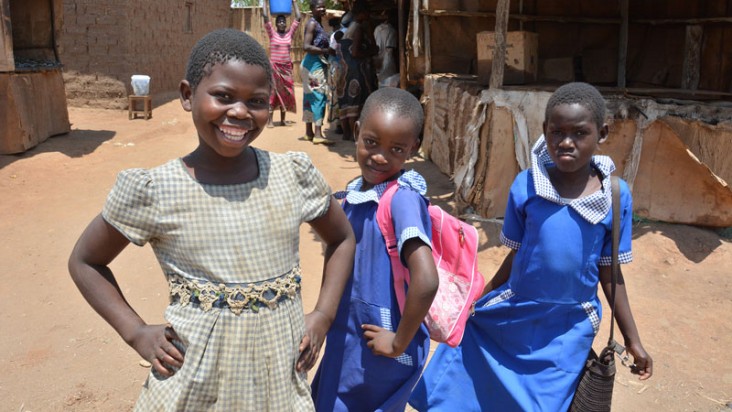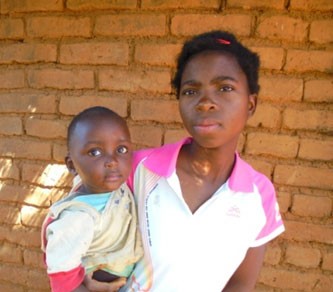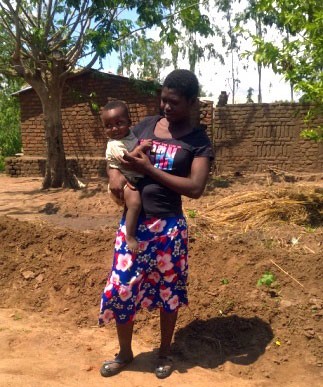- What We Do
- Agriculture and Food Security
- Democracy, Human Rights and Governance
- Economic Growth and Trade
- Education
- Ending Extreme Poverty
- Environment and Global Climate Change
- Gender Equality and Women's Empowerment
- Global Health
- Water and Sanitation
- Working in Crises and Conflict
- U.S. Global Development Lab

How one project is working to empower young women to take control of their educational future
May 2017 – Malawi is one of the biggest success stories across sub-Saharan Africa for addressing the HIV and AIDS epidemic. From 2009 to 2015, Malawi achieved a staggering 71 percent decrease in the number of new HIV infections among children.1 While health statistics like this show improvement worth celebrating, education statistics remain stagnant. As a poor, agricultural country, Malawi has a high dropout and low re-enrollment rate in both primary and secondary school, particularly among young girls due to early marriages or pregnancies. With the support of one project, however, two teenage girls are defying this norm.
The Girls' Empowerment through Education and Health Activity (ASPIRE) project is a consortium of organizations, led by Save the Children – through the support of the U.S. President's Emergency Plan for AIDS Relief (PEPFAR) and the U.S. Agency for International Development (USAID) – that aims to improve learners' literacy levels, increase adoption of positive healthcare-seeking behaviors and reduce harmful structural and cultural practices to girls' education in the Balaka, Machinga and Zomba Districts of Malawi.
ASPIRE is one of the prime implementing partners for PEPFAR's Determined, Resilient, Empowered, AIDS-free, Mentored and Safe (DREAMS) Initiative, which aims to reduce HIV infections among adolescent girls and young women in 10 sub-Saharan African countries.2 The project uses many approaches to improve learning achievement for girls in primary and secondary schools. More specifically, during the second half of 2015, ASPIRE trained local mothers' groups (in hopes of increasing learner readmission rates), as they are the most within reach of girls affected by early marriages and pregnancies. Mothers' groups are made up of about 20 women who work with the local schools to counsel young girls who have left school. They provide home-based follow-up to assist girls with re-enrolling in school. Additionally, ASPIRE conducts trainings to schools and community stakeholders on the importance of girls' education. Teachers who have attended these trainings visit young mothers who have dropped out of school and, like the mothers' groups, encourage them to re-enroll.

A newborn baby, coupled with discouragement from parents and peers, leaves many teenage mothers disheartened to continue their education. This is the case of Catherine Saidi, a 16-year-old mother from the Machinga District. Impregnated by her brother-in-law at the age of 13, Catherine vowed not to return to school because of the criticism she received from the people in her village. Her life took a turn, however, when she found herself in the audience of a local educational theater performance.
The participatory play focused on education and discussed Malawi's school re-admission policy for pregnant girls. Motivated by its message, and with the support of the local chief and mothers' group, Catherine re-enrolled in school. After completion of her final exams, she was excited to learn the results of her hard work, far surpassing her expectations. "Fortunately, I have been selected to go to secondary school," said Catherine, "and I have already inspired others to go back to school and work hard."
Similar stories can also be seen in the neighboring district of Zomba.

At 15 years old, Diana Michongwe was a new mother in an unhealthy marriage. Her decision to drop out of school due to her pregnancy was initially supported by her parents. When teachers involved with the ASPIRE project tirelessly encouraged Diana's mother on how important it was for her daughter to be in school, her attitude changed. Teachers also visited with Diana directly and successfully influenced her to go back to school, where she is now working to complete her primary education. While she does face challenges in obtaining basic school materials, she recognizes the support system around her. "Both male and female teachers, including fellow learners, treat me well, and they are all providing the necessary support I need."
ASPIRE conducted an assessment toward the end of 2015 that showed 71.1 percent of learners in all three districts were readmitted due to the work of the ASPIRE-supported mothers' groups. Likewise, 786 learners (504 females and 282 males) were readmitted into schools across all three districts in 2015 and 2016, suggesting an impact from the ASPIRE project.
There are many factors that make youth, particularly young girls, vulnerable to acquiring HIV and AIDS. Much data shows a direct link between a decrease of HIV acquisition and education enrollment. The results from the ASPIRE project suggest that for Malawi to keep improving – and sustain – its promising HIV and AIDS progress, then it must continue to concurrently empower young children, specifically girls, to take control of their educational future.
Additional Links
Footnotes
- Malawi 2016 Country Fact Sheet, UNAIDS [PDF, 49KB]
- The ASPIRE project was pre-existing in the Balaka District of Malawi before it became a DREAMS partner. Balaka is a non-DREAMS district.







Comment
Make a general inquiry or suggest an improvement.